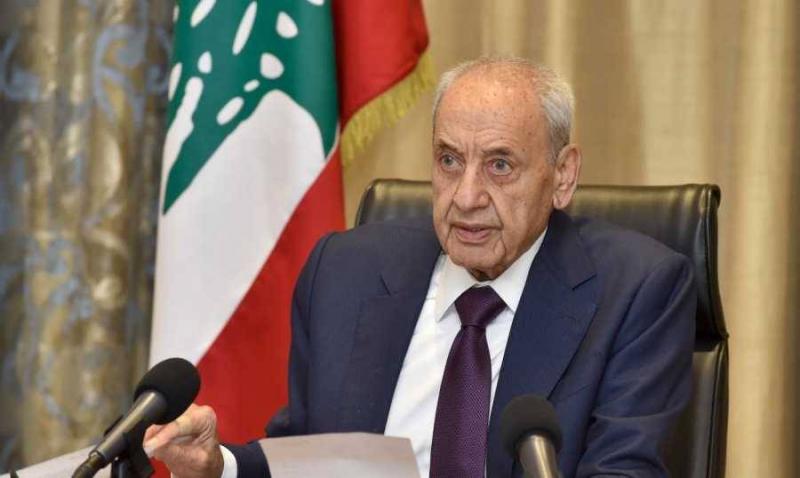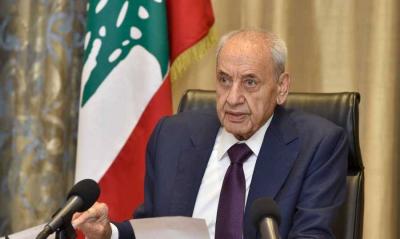Despite apparent preparations for war and readiness to confront Iranian retaliation, the diplomatic door has not yet closed completely, according to a Western diplomatic source speaking to "Al-Jumhuriya." The source revealed accelerated efforts from multiple international directions towards both Israel and Tehran, as well as towards Lebanon, to narrow the possibilities of war. The Western diplomat acknowledged the significant difficulties facing mediation efforts, which enhance the likelihood of large-scale confrontations. However, he believes that the doors are not completely shut, and the opportunity to avoid a devastating war adventure remains possible, especially if the parties involved genuinely appreciate the magnitude of the consequences, damages, and severe repercussions the war could cause to their countries and potentially to the entire region.
In this context, the source confirms that the United States still prioritizes preventing the outbreak of a wide-ranging war in the region. This was articulated by Secretary of State Blinken, who called on all parties to take steps to ease tensions and avoid escalation. In this regard, the U.S. plays a supportive back-channel role in encouraging mediation aimed at alleviating the severity of Iranian retaliation against Israel, especially since it is not far from the recent visit by the Jordanian Foreign Minister to Tehran, which appears to have been unsuccessful.
Responding within legal frameworks, it has been confirmed that the Jordanian minister's visit failed, as U.S. and Arab media reported Iran rejected calls to lessen its response to the assassination of Ismail Haniyeh in Tehran. Iran has also announced, through multiple officials, its determination to respond, which was described by the commander of the Revolutionary Guard as “strong and devastating.” Notably, the Iranian Foreign Ministry spokesperson stated that Iran does not seek to increase tensions in the region and has invested diplomatic efforts towards stopping the war. Furthermore, its response will be within the frameworks of international laws and norms. This position was reiterated by Iran's acting Foreign Minister, Ali Bagheri Kani, during his meeting yesterday with foreign ambassadors in Tehran.
**Washington: War is Not Inevitable**
Alongside this atmosphere, a significant U.S. position emerged, expressed by the American State Department. Secretary of State Antony Blinken spoke with the Prime Minister and Foreign Minister of Qatar and the Foreign Minister of Egypt about the tensions in the Middle East. He informed his counterparts that the world is facing a critical moment in the Middle East, and it is important to de-escalate. The department emphasized that efforts are ongoing to achieve a ceasefire in Gaza, seen as a crucial step to calm broader tensions. The parties must search for ways to reach a ceasefire agreement in Gaza rather than reasons for delay or rejection.
The department stated that they communicated through their allies a message to Iran that they would defend Israel and that escalation does not serve Iran’s interests. It concluded by affirming that they do not believe an all-out war is inevitable and continue to work to prevent it. They do not think the framework for the agreement regarding Gaza has been undermined, but there is still a need to overcome differences.
**Responses in Bulk or Individually?**
On the communications front, a high-ranking official source disclosed to "Al-Jumhuriya" that external communications regarding Lebanon are ongoing at a high pace and have intensified following the Israeli aggression on the southern suburbs and the assassination of Hezbollah leader Fouad Shukr. The source expressed surprise at what he described as the excessive enthusiasm shown by external parties, stating, "No one has refrained from speaking with us; when we are struck, they remain silent, but when Israel is struck or feels threatened, they rush to seek calm," as is the case today, where they call for restraint and emphasize de-escalation, not out of concern for Lebanon, but rather for Israel, which they treat as if it were the 51st American state.
The source pointed out that these communications confirmed what we already knew, as all parties, without exception, share a single issue: Israel's right to defend itself. Nonetheless, they request that we comply with what is being asked of us.
The source provided examples of what is being discussed in these communications, saying they believe that responses to Israel will occur, hence the first thing they say is to warn of the dangers of these responses. Then they want us to tell them whether the response to Israel will be in bulk or individually. They focus on the question of how Hezbollah will respond to the assassination of Martyr Shukr, and when this response will occur. Some even wish that this response would be controlled so as not to lead to a large-scale confrontation. They also inquire about whether Hezbollah's response will be independent or jointly with Iran and concurrent with its response to the assassination of Ismail Haniyeh.
From our side, we have confirmed our principled position that we do not want war and are not seeking it. Hezbollah has not deviated from its commitment to the rules of engagement since day one, while Israel's aggressions and assassinations push matters towards greater escalation. Regarding Hezbollah's response, this matter is left to the field, as Sayyed Hassan Nasrallah said.
**Berri: Internal Unity is Needed**
In response to a question posed by "Al-Jumhuriya," the Speaker of the House, Nabih Berri, stated that the current situation is sensitive and critical, necessitating the utmost unity among Lebanese to strengthen the country against the Israeli threats it faces. In response to another question, Berri affirmed Hezbollah's right to respond to Israeli aggression, reiterating the commitment to the rules of engagement that the resistance has upheld since the beginning, while Israel intentionally violates these rules by targeting civilians deep within Lebanese areas.
Earlier, Berri emphasized total adherence to Resolution 1701 and its implementation in all its aspects, asserting that in the face of any Israeli aggression against Lebanon, we will be on the lookout as the Amal Movement and Hezbollah, at the front lines of confrontation. It is noteworthy that Berri held an extensive meeting last Saturday with caretaker Prime Minister Najib Mikati, where they discussed recent developments and the intensified international communications that followed the two assassination crimes committed by Israel against Shukr in the suburbs and Haniyeh in Tehran, along with the steps that the government must take to mobilize all its agencies to confront the current phase and reduce, as much as possible, the burdens on the Lebanese that may arise from any Israeli aggression against Lebanon.




